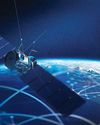
Early this year, the Ministry of Information & Broadcasting (I&B) announced that the government was preparing to conduct trials of direct-to-mobile or D2M technology in 19 cities using Prasar Bharti's infrastructure to assess its effectiveness. To achieve this the government has been closely working with the Indian Institute of Technology (IIT), Kanpur and Saankhya Labs, which has developed a chip that can help users stream live television feeds and even curated video content in the long run-all without the need to use mobile data.
While the development of D2M broadcasting standards has largely remained muted, the technology has created some degrees of optimism and skepticism in equal parts over the past month.
WHAT IS D2M?
Put simply, D2M broadcasting refers to the transmission of content airwaves directly from a broadcasting transmission tower to a user's smartphone. This does away with the need to use data services to stream content, especially video.
To do this, a purpose-built set of infrastructure is needed, including a specialised chip and receiver of airwaves on a smartphone itself. While all of this is a work in progress if it can be achieved, D2M will do away with the need for consumers to rely on telecom operators to get access to Internet connectivity, the backbone of all modern-day applications.
WHY IS D2M IMPORTANT?
To be sure, D2M is not drastic or new but is so far used only in limited capacities for emergency public broadcasting of central government notifications. D2M is key because the networks are getting increasingly congested and consumption of mobile data is on the rise. Further, D2M could expand mobile content consumption even to newer sections of society, thereby becoming a technology that could help power progress in many households that do not have access to a television unit.
Bu hikaye Voice and Data dergisinin April 2024 sayısından alınmıştır.
Start your 7-day Magzter GOLD free trial to access thousands of curated premium stories, and 9,000+ magazines and newspapers.
Already a subscriber ? Giriş Yap
Bu hikaye Voice and Data dergisinin April 2024 sayısından alınmıştır.
Start your 7-day Magzter GOLD free trial to access thousands of curated premium stories, and 9,000+ magazines and newspapers.
Already a subscriber? Giriş Yap

Cloud endoscopy breakthrough for real-time remote diagnostics
NTT Corporation and Olympus Corporation have demonstrated the feasibility of real-time remote diagnosis and treatment using the world's first endoscopy system powered by IOWN All Photonics Network (APN) technology. The breakthrough experiment successfully processed endoscopic videos on a server located 150 km away, overcoming latency issues and enabling seamless diagnostics.

Rise of the homegrown telecom infrastructure
Telecom infrastructure, once led by US and European designs and made in China, iS Now increasingly designed and manufactured in India, marking a pivotal shift

Balancing innovation and regulation for a connected future
Crafting agile governance ensures equitable, sustainable growth, blending innovation with societal protection in a hyper-connected digital age

Driving transformative shifts towards digital leadership
India's telecom sector, driven by 5G, bold policies, and cross-sector collaborations, is paving the way to global digital infrastructure leadership

Scaling AI in data centres for the next big leap
GPU-optimised data centres are vital for advancing India’s Al ambitions, enabling it to meet growing computational demands and maintaining global competitiveness

Bridging gaps with AI's transformative communication wave
AI-driven real-time communication reshapes industries, enhancing connections, operational efficiency, and immersive experiences in a digital-first world

Weaving the fabric of CDN efficiency
Local peering transforms CDNs by cutting latency, boosting reliability, and ensuring seamless, high-speed delivery for modern digital experiences

From orbit to opportunity: Redefining connectivity
India's satcom sector is set to revolutionise connectivity through hybrid networks, bridging the digital divide and driving innovative technologies for growth

Orchestrating telecom's smart future
AI and automation can revolutionise telecom networks, crafting intelligent, selfoptimising systems to meet future demands and deliver seamless connectivity

Unlocking the true potential of IoT
Specialised silicon and 5G are set to redefine loT's future, driving AloT innovations that deliver real-time intelligence, security, and seamless connectivity